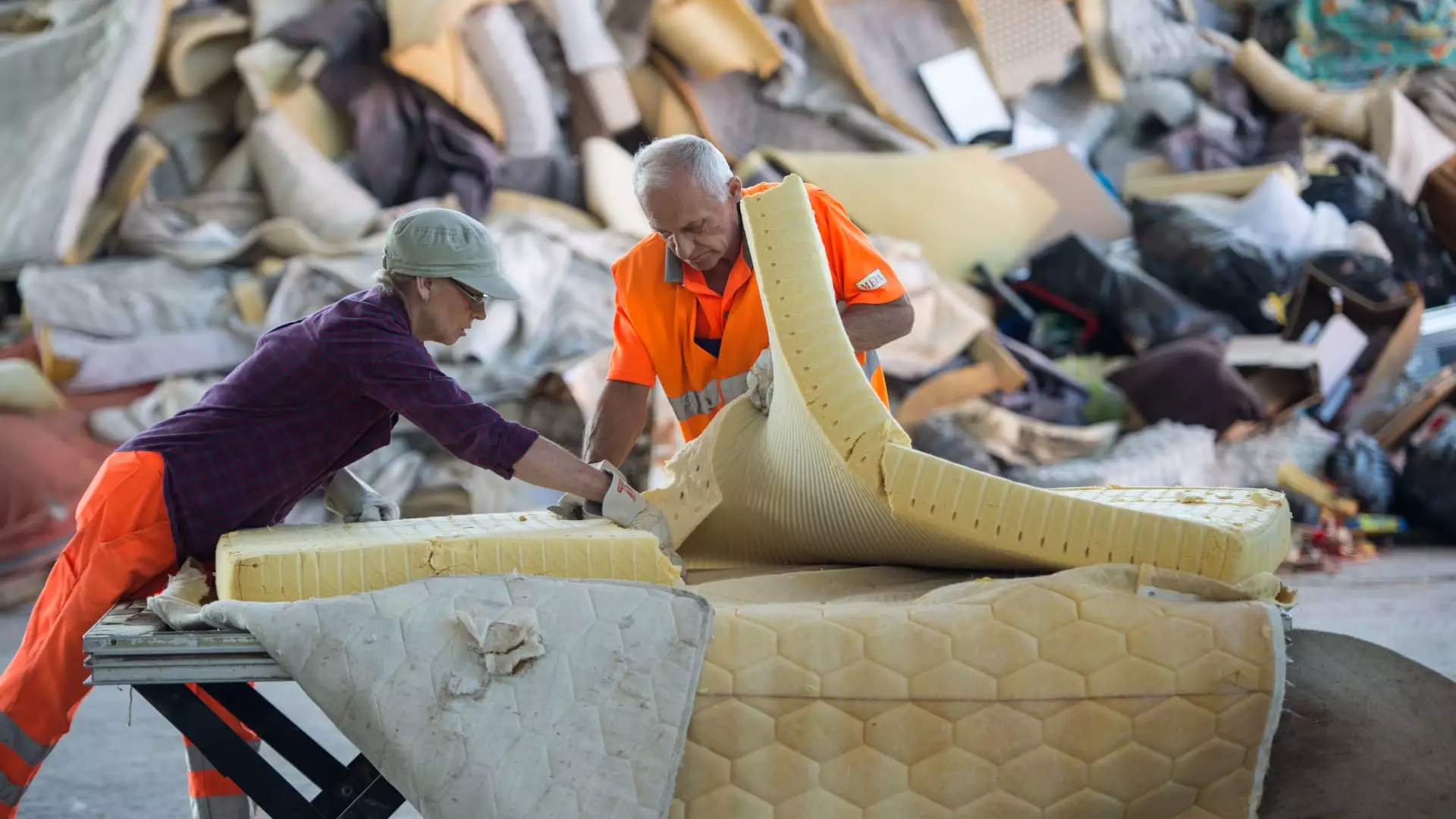In recent years, there has been a growing understanding of the importance of recycling and environmental responsibility, which has led several states in the U.S. to implement programs that make mattress recycling more accessible and efficient. Currently, California, Connecticut, Oregon, and Rhode Island are at the forefront, each imposing a flat fee on consumers when purchasing new mattresses or box springs. This fee, which generally ranges from $16 to $23, serves as a financial mechanism to fund state-led recycling initiatives aimed at reducing landfill waste. As more states consider adopting similar measures, the mattress industry is facing a pivotal moment that could transform its approach to waste management and sustainability.
Statistics reveal a troubling trend: Americans dispose of approximately 15 to 20 million mattresses annually, equating to nearly 50,000 discarded mattresses every single day. This staggering figure is indicative of a significant waste management issue, particularly since more than 75% of a mattress’s materials — including wood, steel, foams, and fibers — can be recycled. The Mattress Recycling Council (MRC), a body established by the bedding industry, emphasizes that improper disposal of these materials contributes to environmental degradation. Not only do these initiatives aim to alleviate the strain on landfills, but they also provide an opportunity to recover valuable resources and promote a circular economy.
States that have embraced these mattress recycling fees are utilizing the funds to establish comprehensive recycling programs and educating consumers on the benefits of recycling. For instance, Oregon’s recently instituted fee of $22.50 includes a “stewardship assessment” that appears on purchase receipts, channeling nearly half of the fee towards operational costs of the recycling program while also funding public education efforts. Meanwhile, California and Connecticut are gradually increasing their fees, aiming to allocate more resources towards maximizing recycling and prevention of illegal dumping practices.
However, the collective recycling programs can only be as effective as the accessibility of drop-off and pickup services. In states where recycling laws are not in place, options are severely limited. Oftentimes, consumers find themselves shouldering hefty fees for disposal services, which can reach upwards of $95, as is the case in metropolitan areas like New York City. This highlights the need for a standardized recycling infrastructure across the nation.
At the heart of these initiatives is a concept known as Extended Producer Responsibility (EPR), which shifts some of the burden of waste management from consumers and local authorities to producers themselves. According to experts like Reid Lifset from Yale University, EPR establishes a framework where manufacturers are accountable for the lifecycle of their products, including dealing with them at the end of their useful life. EPR programs create a sustainable model for funding recycling systems, allowing states to pursue operational, outreach, and educational efforts.
As states collaborate with retailers to pass these consumer fees to initiatives like the MRC, it becomes increasingly feasible to institutionalize recycling programs. In fact, Oregon boasts a network of over 300 collection sites, indicating a robust commitment to providing consumers with accessible disposal options without incurring additional costs.
While the current initiatives are commendable, they also serve as a reminder of the work still needed to address mattress waste comprehensively across the United States. As discussions heat up in states like Massachusetts, Maryland, New York, and Virginia to potentially introduce similar recycling programs, it is evident that a larger shift in policy is underway. Elevated awareness and proactive measures in mattress recycling could pave the way for other household items to undergo similar transformations in sustainable practices. As consumers become increasingly eco-conscious, the demand for responsible disposal methods will further encourage manufacturers and lawmakers to prioritize sustainability in their business models.
Mattress recycling represents a critical juncture in both waste management and environmental responsibility efforts. As these state-led programs continue to evolve, they stand as benchmarks for other industries, promoting a shift toward a circular economy that benefits consumers, businesses, and the planet alike.

